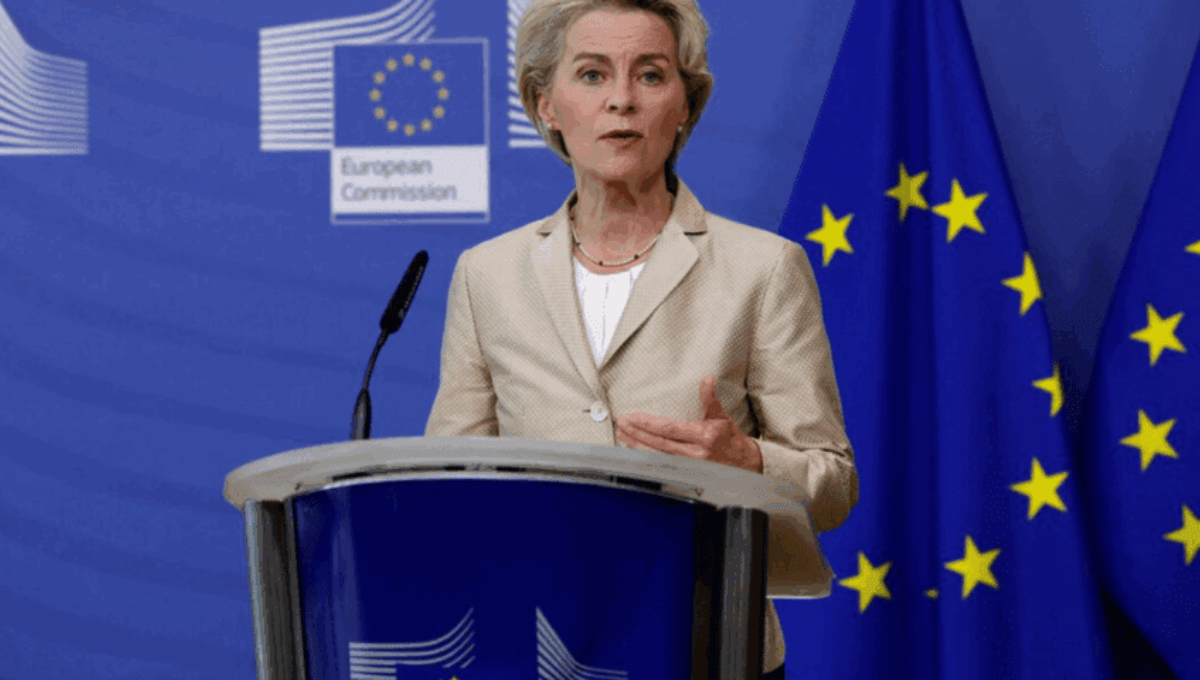The latest information indicates that the European Union is preparing its 19th package of sanctions against Russia, which will notably target Russian banks, cryptocurrency exchanges, and the energy sector. This sanctions package is part of the EU’s continued efforts to pressure Russia following its military aggression in Ukraine. The package is still in preparation, with no final official list of targeted entities or a fixed timeline yet publicly disclosed.
Key points about the EU’s 19th Russia sanctions package include:
- The package aims to add approximately half a dozen Russian banks and energy firms to existing restrictions, intensifying the financial pressure on Russia’s economy.
- A significant focus is on cryptocurrency platforms. The sanctions plan to designate certain Russian crypto exchanges and affiliated parties, tightening measures for EU-regulated virtual asset service providers (VASPs). This could restrict direct business with listed crypto platforms and force banks and payment processors to strengthen due diligence on fiat-to-crypto and crypto-to-fiat transactions, enhancing sanctions screening.
- The energy sector will see further action, including cracking down on Russia’s shadow tanker fleet, targeting oil traders in third countries, and possibly banning reinsuring vessels connected to Russia. This intends to disrupt financing and shipment logistics tied to Russian oil exports.
- The EU is coordinating closely with international partners, especially the United States, to align sanctions efforts effectively. EU officials have engaged in meetings in Washington to ensure synchrony with G7 priorities.
- Beyond financial and energy sanctions, the package may introduce new export bans and restrictions targeting machinery, chemicals, and technology that support Russia’s military industry, including AI-related services and goods potentially diverted for weapons production.
- The EU is considering deploying an anti-circumvention tool, possibly for the first time, to prevent sanctioned goods from reaching Russia via third countries such as Kazakhstan.
- Top EU spokespeople emphasize that the sanctions are designed not only to expand restrictions but also to enhance the effectiveness and enforcement to prevent circumvention.
- The package is a response to Russia’s continued aggression, illegal annexations in Ukraine regions, increased troop mobilizations, and nuclear threats.
Due to ongoing negotiations and coordination among EU member states and international partners, the sanctions package remains subject to changes before formal adoption. The EU Commission spokespersons have confirmed that the package preparation is active but not yet finalized or presented officially.
US Treasury officials have expressed commitment to increasing pressure on Russia but highlight the necessity of coordinated action, including from European allies. US President Donald Trump has also weighed in, stating readiness to impose serious sanctions on Russia contingent upon NATO countries ceasing Russian oil imports.
Previous EU sanctions have included bans on Russia-originated payments to crypto wallets and restrictions on individuals and entities supporting the Kremlin’s war efforts. The 19th package aims to maintain this trajectory with stronger targeting of financial channels like crypto, banks, and payment systems, which could be used to evade sanctions.
This latest sanctions round is a crucial part of broader geopolitical efforts involving trade restrictions, financial penalties, and diplomatic measures to respond to Russia’s ongoing conflict with Ukraine.
EU’s 19th Russia Sanctions Package Overview
The EU’s 19th sanctions round will intensify pressure on Russia by targeting key financial and energy sectors linked to the Kremlin’s war efforts. New measures are anticipated to:
- Add several Russian banks and energy companies to the sanctions list.
- Target Russian crypto exchanges and affiliated counterparts.
- Strengthen restrictions on payment and credit-card systems connected with Russia.
- Expand energy sector sanctions, including shadow tanker fleet and oil traders.
- Deploy anti-sanction circumvention measures involving third countries.
Cryptocurrency Sector Target
A distinctive feature of this sanctions round is the focus on cryptocurrency. The EU intends to designate Russian crypto exchanges and related entities, affecting EU-regulated virtual asset service providers (VASPs). This will likely:
- Restrict direct dealings with sanctioned platforms.
- Increase compliance obligations for fiat on-/off-ramps.
- Heighten sanctions screening and blocking of illicit funds.
- Further close loopholes in financial channels used by Russia to bypass existing sanctions.
Energy and Oil Trade Measures
The EU plans to focus heavily on the energy sector by:
- Cracking down on Russia’s covert tanker fleet (shadow fleet).
- Targeting oil traders operating in third countries.
- Possibly banning the reinsuring of vessels connected to Russian oil shipments.
- Coordinating with US sanctions plans aimed at Russia’s major oil companies like Rosneft and Lukoil.
These steps aim to disrupt both physical transport and the financial mechanisms supporting Russian oil exports.
International Coordination and Political Statements
The EU is working in close alignment with international partners, primarily the United States and G7 nations, on this sanctions package. This unity is important to maximize the sanctions’ effectiveness. US Treasury Secretary Scott Bessent emphasized the need for partnership in increasing pressure on Russia. Meanwhile, the former US President Donald Trump voiced strong demands for NATO countries to halt Russian oil imports, tying this to further sanctions commitments.
Additional Sanctions Elements
Additional sanctions considerations include:
- Export bans on goods and chemicals used by Russian military industry.
- Trade restrictions on foreign companies that supply Russia, including some in China.
- Visa restrictions and port measures against facilities handling Russia’s shadow vessels.
- Controls on AI-related services with potential military applications.
The EU is also contemplating the first deployment of an anti-circumvention tool designed to block equipment imports diverted to Russia, potentially starting with Kazakhstan.
Current Status and Outlook
As of mid-September 2025, the European Commission confirms ongoing work on the sanctions package, but no formal adoption or publication of the final text or list of targets has occurred. Discussions within EU capitals and with global partners continue to shape the scope.
The package’s effectiveness will depend on member state agreement as well as transatlantic coordination. The EU remains committed to refining sanctions so they are robust and minimize circumvention risks.


